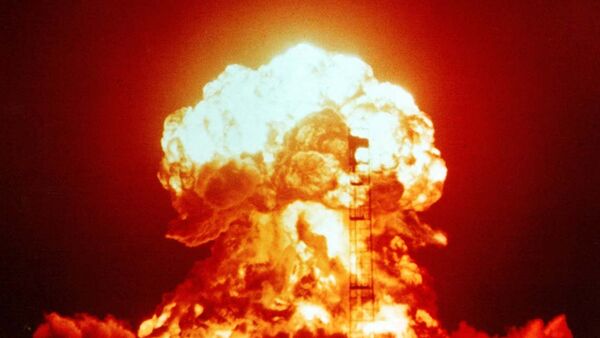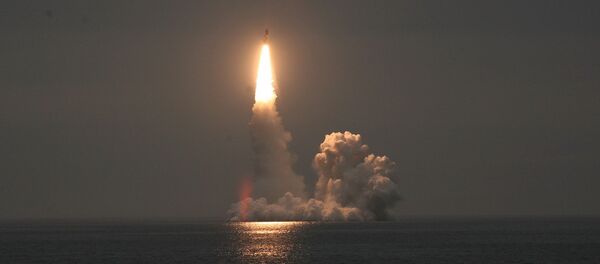"Our countries [the United States and Russia] have to find a way to peacefully co-exist and find common ground and work together," Eric Schlosser, the author of "Command and Control: Nuclear Weapons, the Damascus Accident, and the Illusion of Safety", told Sputnik.
"I think we are the most endangered by these weapons and it is insane that we would even think of pointing even one nuclear weapon at Russia, let alone thousands and it is insane that you would even think of pointing one at us, because there is no need, and there has never been need of that," he added.
Schlosser stressed that Moscow and Washington are obliged to reduce their rhetoric toward one another and find a way to settle their differences in opinion without threatening to kill civilians, because "ultimately, nuclear deterrence is about threatening to kill all the civilians in the adversary"s country if they attack you".
Hans Kristensen, the director of the Nuclear Information Project with the Federation of American Scientists, highlighted that neither Russia, nor the United States has any interest in contemplating the use of nuclear weapons.
"I don't think either of them believes that nuclear weapons would be useful for any of the things that are going on in Ukraine scenario right now. So the danger is not so much that one of them has some evil plan to attack the other with nuclear weapons, the danger is that because of the crisis collaboration has been cut off, collaboration has been essentially cut off on anything — it is extraordinarily deep," Kristensen told Sputnik.
He explained that as both sides are preoccupied with muscle-flexing and posturing, it only aggravates the problems in their relations.
Eric Schlosser also noted that although many countries view nuclear weapons as a means to maintain the status quo, the risks of possessing them are too high and bear catastrophic consequences.
"The risk of deterrence failing is so catastrophic, that you have to find another way in the 21st century that you can make sure that if Russia and the United States disagree about something, there is no possibility [of using nuclear weapons]," Schlosser said.
One of the problems with nuclear weapons is that it is different from physical defense like it was in the Middle Ages, when citizens were protected by an impenetrable wall. When it comes to nuclear deterrence, there are psychological aspects in play.
Schlosser said that every country can have a "mad man" or emotionally unstable leader. The US military was very concerned about Nixon's mental state, and even overstepped their official duties to prevent him from making bad decisions.
"I think deterrence does work, but it is very dangerous way of preventing a war," Schlosser concluded.
Hans Kristensen argued that the possession of nuclear weapons deters one country from launching a nuclear attack against another, and stated the basic function of nuclear deterrence is to make an opponent think twice.
"So it is very easy for countries that have nuclear weapons to say they would keep them because they serve some ultimate purpose. And we would keep them for as long as other countries have them. But none of those countries is trying to negotiate with the other countries the elimination of those weapons. So it is a cycle of excuses," he concluded.
Nine countries – Russia, the United States, the United Kingdom, France, China, India, Pakistan, North Korea and Israel – currently have nuclear weapons.
The Conference on the Humanitarian Impact of Nuclear Weapons is taking place on December 8-9 in Vienna and is aimed at strengthening global nuclear disarmament and nonproliferation, as well as contributing to the discussion about risks associated with the development and use of nuclear weapons.




